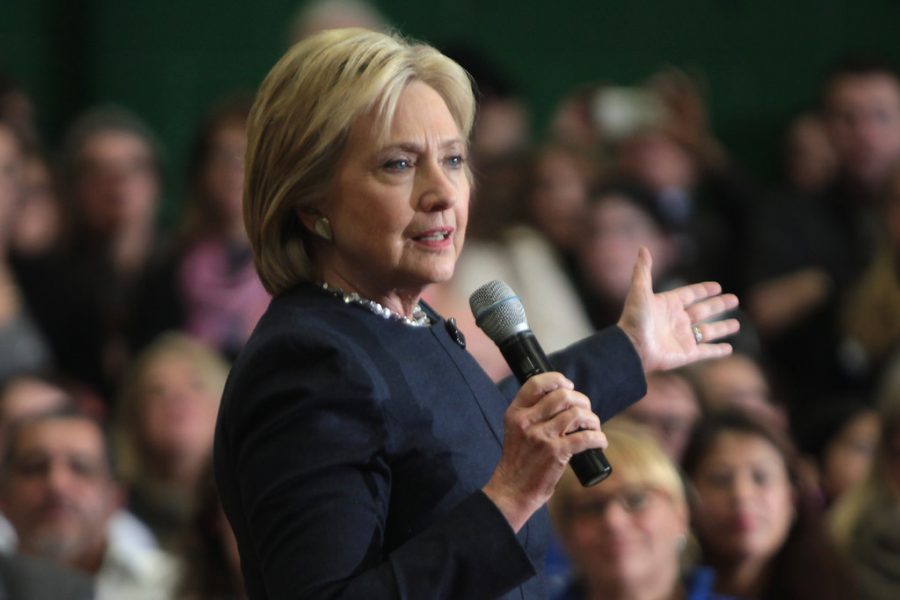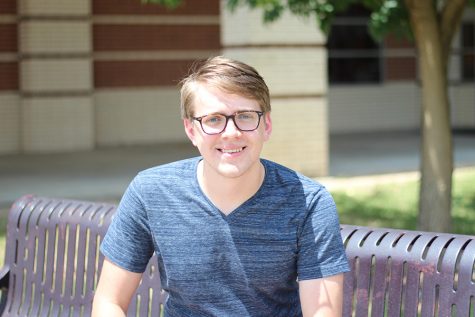Trump, Clinton, face obstacles in upcoming national conventions
Former Secretary of State Hillary Clinton speaks at a campaign event. She will be tested by Bernie Sanders supporters, who vow to fight for the Vermont Senator’s nomination.
July 4, 2016
From white supremacists to FBI indictments, both the Republican and Democratic National Conventions will have to deal with unprecedented challenges this year electing their party nominee.
Presumptive Republican nominee Donald Trump and his controversial policies have caused a stir among the leaders of his fellow party members, many of whom will not attend the convention in two weeks. This list includes notable figures like 2012 nominee Mitt Romney and former presidents George W. Bush and his father, George H. W. Bush. Many of Trump’s former rivals in the primaries like Ohio governor John Kasich, former Florida governor Jeb Bush and South Carolina senator Lindsey Graham either will not attend or are undecided about attending. Many of these Republicans are not ready to endorse the presumptive nominee due to his controversial policy proposals, including a ban on Muslims entering the United States and a border wall in an effort to prevent illegal immigrants.
In addition to the absence of major political leaders, Indiana delegate Joshua Claybourn made headlines when he resigned from his position.
“I cannot in good conscience attend a convention supporting [Trump],” Claybourn wrote in a Facebook post. His position will be replaced by an alternate, according to party rules.
The convention hall will not be completely devoid of attendees, however; House Speaker Paul Ryan plans to attend and encouraged fellow Republicans to attend in April.
“If you were planning on going to the convention, you should go,” Ryan said. “It could be something you’ll remember the rest of your life.”
Former House Speaker John Boehner and 2016 presidential candidate Mike Huckabee both said that they would attend, as well as some other prominent party members.
In addition to Republican leaders, the Traditionalist Worker Party, a white supremacist group, also announced their intentions to attend the convention.
“We’re essentially just going to show up and make sure that the Donald Trump supporters are defended from the leftist thugs,” Traditionalist Worker Party spokesman Matt Parrott told the McClatchy newspaper company’s Washington, D.C., bureau.
A few days later, at the Democratic National Convention, presumptive nominee and former Secretary of State Hillary Clinton will face obstacles of her own.
Despite his opponent having all but clinched the nomination, Vermont Senator Bernie Sanders has not yet dropped out of the race or endorsed the former Secretary of State, who has 2,220 of the 2,383 delegates needed to become the democratic nominee. His supporters seek to win over unpledged superdelegates, citing critical policy differences such as fracking and whether or not to stay out of foreign conflicts.
If Clinton does not succeed in acquiring her party’s nomination, it will likely be the FBI- not Senator Sanders- that prevents her from doing so. The FBI interviewed Clinton for three hours on Saturday, and will probably deliver their findings before the Democratic National Convention. If she is indicted, it is probable that she will be forced to exit the race.
However, if the FBI finds no evidence of wrongdoing by Clinton, the issue will probably disappear, although Republican leaders could continue to use it as a democratic weak spot.
Before the end of July, it is clear that all three candidates left in the race will face challenges against their campaign. Despite a general election with Clinton and Trump having been the predicted norm for some time, only the upcoming national conventions will make this prospect true.


